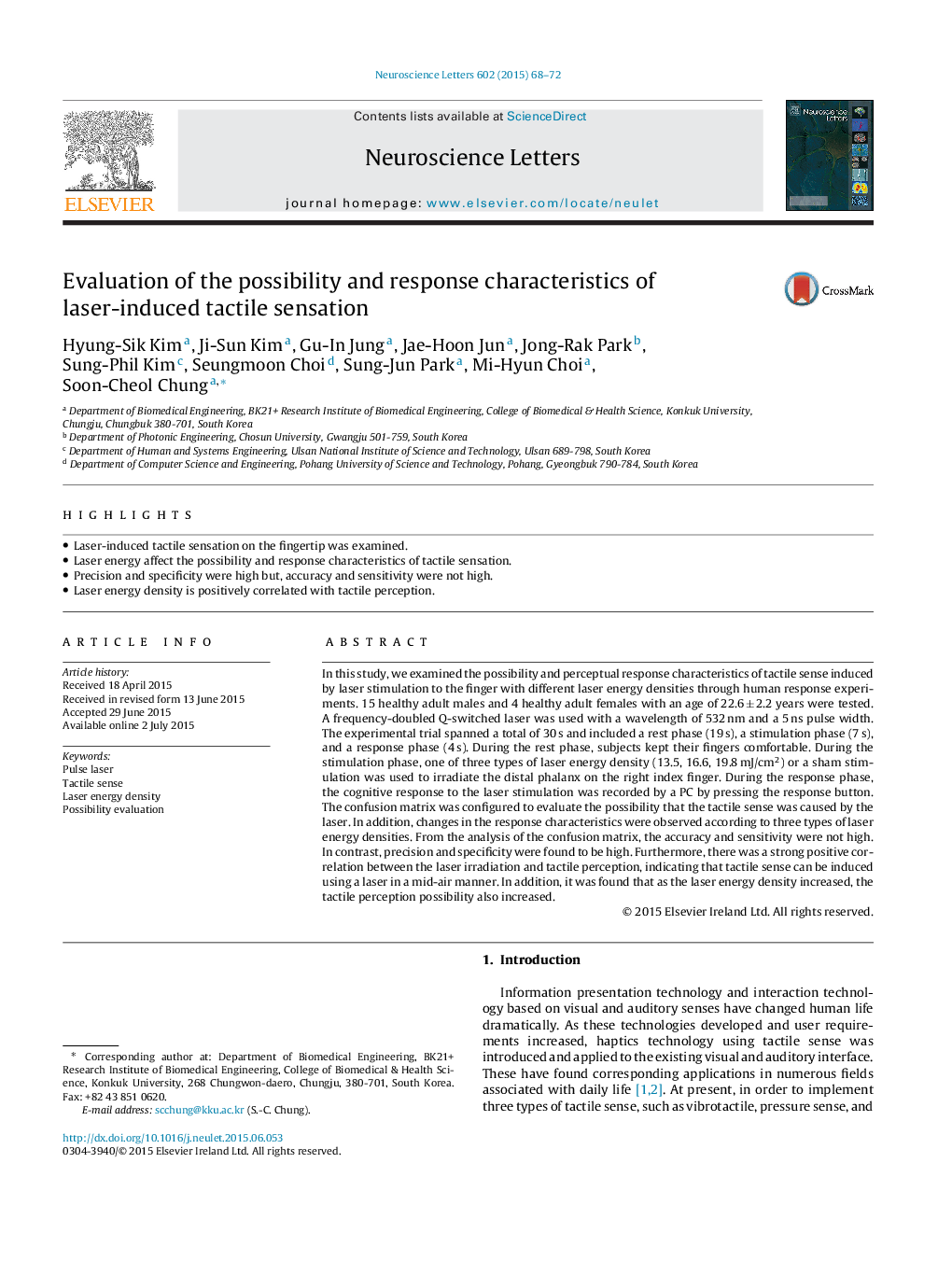| Article ID | Journal | Published Year | Pages | File Type |
|---|---|---|---|---|
| 4343338 | Neuroscience Letters | 2015 | 5 Pages |
•Laser-induced tactile sensation on the fingertip was examined.•Laser energy affect the possibility and response characteristics of tactile sensation.•Precision and specificity were high but, accuracy and sensitivity were not high.•Laser energy density is positively correlated with tactile perception.
In this study, we examined the possibility and perceptual response characteristics of tactile sense induced by laser stimulation to the finger with different laser energy densities through human response experiments. 15 healthy adult males and 4 healthy adult females with an age of 22.6 ± 2.2 years were tested. A frequency-doubled Q-switched laser was used with a wavelength of 532 nm and a 5 ns pulse width. The experimental trial spanned a total of 30 s and included a rest phase (19 s), a stimulation phase (7 s), and a response phase (4 s). During the rest phase, subjects kept their fingers comfortable. During the stimulation phase, one of three types of laser energy density (13.5, 16.6, 19.8 mJ/cm2) or a sham stimulation was used to irradiate the distal phalanx on the right index finger. During the response phase, the cognitive response to the laser stimulation was recorded by a PC by pressing the response button. The confusion matrix was configured to evaluate the possibility that the tactile sense was caused by the laser. In addition, changes in the response characteristics were observed according to three types of laser energy densities. From the analysis of the confusion matrix, the accuracy and sensitivity were not high. In contrast, precision and specificity were found to be high. Furthermore, there was a strong positive correlation between the laser irradiation and tactile perception, indicating that tactile sense can be induced using a laser in a mid-air manner. In addition, it was found that as the laser energy density increased, the tactile perception possibility also increased.
